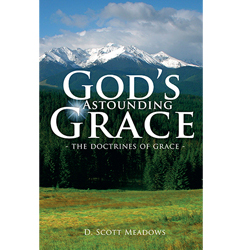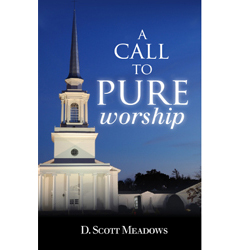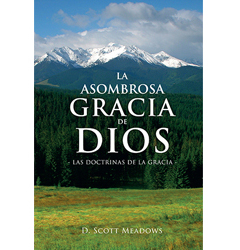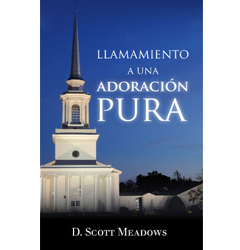

Gospel Unity Recommended to the Churches of Christ
D. Scott Meadows
A Sermon by John Flavel (1627–1691)
Abridged and paraphrased by D. Scott Meadows
1 Cor 1.10, “Now I beseech you, brethren, by the name of our Lord Jesus Christ, that ye all speak the same thing, and that there be no divisions among you; but that ye be perfectly joined together in the same mind and in the same judgment.”
This healing and uniting text and the scandalously divided congregations to which I recommend it call for an exposition with tears more than words, since such preaching has little influence upon most professing Christians. But more than tears, even teaching and exhorting in words, must do the work.
Even the first century churches under the apostles discovered a schismatic spirit (a tendency to sinful divisions) among them, grieving apostles like Paul, so he wrote to them and to all future churches of Christ in the words of 1 Cor 1.10.
1. The duty exhorted to: unity—the beauty, strength, glory, and duty of a church. This opposes all rash separations and requires the harmony and agreement of their judgments, hearts, and language.
(1) Union in judgment. “That ye be perfectly joined together . . . in the same judgment.”
(2) Union in affection. “That ye be perfectly joined together in one mind” (heart).
(3) Union in language. “That you all speak the same thing.”
2. The arguments enforcing the duty. Three arguments of increasing force (great, greater, greatest).
(1) Apostolic exhortation. “Now I beseech you.” He had power to command them but instead pleads with them on his knees, meekly begging with strong emotion, who led them to Christ.
(2) Nearness of relation. “Brethren.” Brotherhood endears us to each other (1 Pet 3.8; Psa 133.1).
(3) The name of Jesus Christ. “By the name of our Lord Jesus Christ.”
1. For the sake of His love and sufferings. As Christ is dear to you, let there be no divisions.
2. On account of His authority to command you. “Name” includes this idea. If you reverence Christ’s supreme authority and sovereignty, how can you disobey His command?
Doctrine: Unity among believers, especially in a particular church-relation (formal members of the same congregation), is as desirable a mercy, as it is a necessary and indispensable duty.
I. Description of unity among believers is, especially members of the same local church. It is both a mystical unity between Christ and believers and a moral unity between believers themselves.
We are glued together by the blood of Christ. Union with Christ is fundamental to all union among the saints. Only our corruptions hinder it. Eventually, Christ’s prayer for perfect unity will be answered (John 17.23). We may have political or civil union with unbelievers, but only true Christians can have true spiritual unity. Some in the church show the pretense of their faith in Christ by their departure (1 John 2.19). True Christians join the church of believers for spiritual reasons and stay in it for the same reasons. If people join the church only for carnal and external reasons, they will make little conscience of leaving it. God permits this to expose them (1 Cor 11.19). Hypocrites add nothing of real spiritual advantage to a church. We must be careful not to add them in the first place (Amos 3.3). When Christians have agreed to walk together under pious and judicious church officers, in tender affection and in a faithful course of edifying one another, this fulfills Christ’s purpose in establishing particular churches and tends to their own comfort and spreading the gospel through the world. Tongue-unity comes from heart-unity, heart-unity from head-unity, and all three from union with the Lord Jesus Christ. The disunity of our tongues comes mostly from our divided hearts! Were that mended, what blessed times might be expected!
II. Necessity and desirability of this unity
A. The glory of God. To glorify God should be our highest priority; church unity greatly advances it. In a prayer for unity as a means of God’s public glory (Rom 15.5, 6), Paul addresses “the God of patience,” our patience or forbearance toward one another being so necessary for maintaining unity among the saints, and “the God of consolation,” which consolation will be ours from such a blessed unity maintained through brotherly forbearance. Paul drives the point home by the phrase, “according to Christ.” Our Lord Jesus Christ finds countless weaknesses and failures in His people and still maintains union and communion with them. If we follow His example, we will do likewise and God will be greatly glorified in this. People will see that the Christian religion is both true and excellent since it knits together the hearts of those who hold it.
B. The comfort and benefit of our souls. A great example is found in Acts 2.46, 47. The early Christians enjoyed great cheerfulness, strength, and pleasure from their unity. These experiences were gifts from God and really extraordinary. How it refreshed their spirits! It was a foretaste of heaven. In church splits, people suffer frustration, grief, and wounded hearts. They yearn to get away from everybody and just be by themselves (Psa 55.6, 7). All this misery is the sad consequence of disunity.
C. Our testimony before the world. Outsiders are allured to Christ by the church’s sweet unity and scared off from religion by the feuds and divisions of professing Christians. Christ connected our unity with our credible testimony before unbelievers in John 17.23. Church unity is a persuasive evidence to the world of Christ’s divine person and doctrine which we profess. But if Christ’s followers bite and devour one another, it becomes a fatal stumbling block to the conversions of many. One Roman emperor, not even a Christian, found two Christians contending with other and told them that they should not claim to be Christians any longer because they greatly dishonored their Master, Jesus Christ.
Use of this teaching:
III. Motives and directions about this unity
The first use is to exhort us to unity. With the earnestness of Christ and the words of Paul, I exhort all my brethren to unity, especially within a particular local church (Phil 2.1, 2). What heart that has one spark of Christ’s love in it would not yield to such an exhortation? However much disunity there is among you now, consider these motives.
Motive 1: We need more unity for relief from God’s chastening hand. Your recent troubles in the church may be God’s rebukes for your former contentions. Not so long ago you were humbly confessing your sins and turning from your wretched old lives as unbelievers. God has received you into His favor and are you so soon returning to your old divisiveness? View the ugliness of this sin in the mirror of Ezra 9.6–10, 13, 14. Such a long time in the furnace should have purged more of our dross.
Motive 2: We need more unity on account of our common enemies and dangers. Even animals, predators and prey, will flee together as one, without devouring each other, to escape a flood.
Motive 3: We need more unity because our divisions are scandalous before the world. We give them another excuse for their prejudice against the gospel and the church (Matt 18.17). Disunity undermines our evangelistic ministry as a church. If we have any pity for perishing souls and discouraged ministers, repent of disunity. We must adorn the gospel with our peaceable fellowship in the church for the sake of lost people, besides many other reasons. In the name of our Savior and His redemptive work through us, reign in your carnal passions and your tendency to gossip and to criticize and to take offense.
Motive 4: We need more unity because Jesus prayed for it so solemnly and fervently in John 17 as His greatest concern. Four times He begs His Father, with increasing pathos, for unity among His disciples, 1) that they may be one, 2) that they may be one in us, 3) that they may be one as You and I are one, and 4) that they may be made perfect in one. This shows that He was very determined to gain this one thing: unity among His disciples. What could you do more to frustrate the design and grieve the heart of your Lord Jesus Christ, whom you profess to love and obey, than by breaking the bonds of unity among yourselves? In His name, I beseech you, “be perfectly joined together in the same mind and in the same judgment” (1 Cor 1.10)!
Motive 5: We need more unity to further the end of church fellowship which, toward us, is helping each other to grow in grace and to kill our remaining sins. God gives a variety of gifted people to one another in the church and the combination is a great help, with various strengths and weaknesses in each one, to the overall spiritual growth of His church (cf. 1 Cor 12.4-7). Every one of us is deeply flawed, yet occupies a proper and needful place in the church for one another’s benefit. How lovely is the fellowship of such saints when they open their hearts and thoughts to one another (Mal 3.16)! Some say the art of medicine advanced by people discovering cures by trial and then sharing the ones that worked with their friends. But woe to us when we are ready to publish one another’s failings and weaknesses, to the shame of our Christian faith, and to furnish our common enemies with matter for criticizing us all!
Motive 6: These schisms and dissensions in Christ’s churches are ominous signs of some sweeping judgment about to come upon us. Shepherds know that sheep push against one another just before a storm. I am sure this is true here. If God does not turn our hearts toward one another soon, He will smite the earth with a curse (Mal 4.6). Unless God prevents, such judgments will very painfully break up the fighting among us.
The second use is to direct us in preventing and healing divisions among the churches. Complaining and mourning are not enough. We need specific counsels and obedience to them for the work to be done. God told Joshua to move beyond prayer to action (Josh 7.8-10). Likewise, we must act.
Direction 1: Keep out of, or remove from, church membership, everyone except those who, in the judgment of charity comparing their professions with their lives, seem to be true Christians that fear God and live righteously. Church officers are especially responsible to bar unworthy applicants from church membership. Scripture plainly shows us that church members ought to be visible saints (1 Cor 1.2; 2 Cor 1.1, 2; Acts 2.41-48; Eph 2.7; 1 Thess 1.2; Rom 1.7; Col 1.2; 1 Cor 14.33). Church members actually unconverted would necessarily disturb the spiritual peace of the whole body since they hold contrary beliefs and principles. Some opinions and practices disqualify people for formal church membership (Titus 3.10; 2 John 10). Those that overthrow the fundamental doctrines we must believe, the holy life we are to lead, and the power of godliness in our sanctification are either to be kept out if applying or expelled if already a church member (1 Tim 1.19, 20). Admittedly, sometimes a careful church unwittingly and innocently admits those who later start saying perverse things (Acts 20.30), but it would be better, if we could discern them, to keep them out in the first place.
Direction 2: Let all officers and members of the church know their proper roles and keep themselves within the bounds of their callings. Orderliness promotes quietness (1 Thess 4.11). Curiosity about matters not properly your business, or idleness in your particular calling, both disturb and distract the church of Christ. 1) Ministers must be diligent in their work, caring for all the members, without taking sides. Otherwise they will regrettably have a hand in schisms. Jerome said he could find none in church history who divided the church more than her ministers. O what a blessing is a prudent, patient, peaceable minister, to his flock! “From arrogant teachers, contentious pastors, and unprofitable questions, the good Lord deliver us!” (Luther). 2) Ordinary church members should keep in their place and tend to their particular duties. Most churches have some lazy members who gossip and exasperate one Christian against another. Paul marks them and warns us about them: 1 Tim 5.13. If only Christ’s rule in Matthew 18.15, 16, were kept more conscientiously and strictly, many church ruptures would be prevented. We would be more candid and keep things more private than we do, and this would promote unity.
Direction 3: Let us be very careful always to speak with kindness with one another (Prov 15.1; 31.26). Abigail disarmed angry David this way. That holy minister Mr. Cotton once subdued a boisterous man who whispered in his ear, “You are an old fool,” with the reply, “I confess I am so. The Lord make both me and you wiser than we are, even wise to salvation.” How much peace would come through such humility and kindness!
Direction 4: Mutual respect between people of higher and lower station promotes unity. Only the grace of God makes us differ so there is no basis for pride (1 Cor 6.7). We are all one in Christ Jesus (Gal 3.28). Yes, our positions differ in society and in the church. The gospel does not cancel those differences. Church members should esteem ministers very highly in love for their works sake and be at peace among themselves (1 Thess 5.12, 13). People in positions of authority, especially in the church, must humbly show respect to others (Eph 4.2, 3).
Direction 5: Gentle language and respectful dialogue would flow from a combination of wisdom, humility, and love, which should be greater in us than they are. Wisdom fosters an “excellent [cool] spirit” (cf. Jas 3.17). Humility displaces pride, the fuel of contention (Prov 13.10). Love is the cement of living and working together. It leads us to think the best about others and to put up with their faults (1 Cor 13.4-7). “Love me, and then rebuke me as you please” (Augustine; cf. Psa 141.5).
Direction 6: A Christ-like forgiving spirit toward one another is essential (Eph 4.31, 32). If you are offended, remember how often you have given offense—especially to Jesus Christ by your sins, yet He freely forgives you. An unforgiving spirit is a mark of an unforgiven person. We who have found mercy with God should be the most eager to show mercy to others.
Direction 7: Take to heart the miserable consequences of divisions among saints and never divide from your brethren unless continuing with them would require your own sinning. Divisions among the saints delight your spiritual enemies, obstruct your prayers (Matt 5.24), hinder your edification, diminish the blessing of God among you (2 Cor 13.11), and increase your shame (Jas 3.14). You are not such good Christians as you think if you live in sin so directly contrary to the Christianity, dishonoring the very name of Christ. He called you out of the world to be His special people, but He receives little credit from a dividing, argumentative people. Church unity makes us beautiful and this may lead to others being saved (Acts 2.46, 47). Disunity is a heavy stone rolling over unbelievers to keep them down in their impenitence. Tremble over the prospect of disunity! Augustine notes three sins very severely punished in Scripture: one of them was the earth devouring both Korah and his divisive companions (Num 16.32).
Direction 8: Every church member should look to their own union and daily communion with Christ. He is the center where all our lines meet. God makes hearts new first in order to make hearts one (Ezek 11.19). The more we enjoy sweet communion with God, the more we will love unity with His people. If we are too assertive and touchy, it plainly proves all is not well between God and us. Those who enjoy close fellowship with Christ hate to live in contentions with His people. Return to the love and unity of the earliest Christians. Put up with one another. Forgive one another. Put to death your desires to divide from one another. Cherish the graces that unite you. Note divisive people and avoid them (Rom 16.17). To sum up everything: “Now I beseech you, brethren, by the name of our Lord Jesus Christ, that ye all speak the same thing, and that there be no divisions among you; but that ye be perfectly joined together in the same mind and in the same judgment” (1 Cor 1.10). Ω
All Rights Reserved. Used with permission. No part of this article may be used or reproduced in any manner whatsoever or translated without written permission.
The following books by D. Scott Meadows are available at Trinity Book Service and Cristianismo Histórico:
Ebook: A Call to Pure Worship | D. Scott Meadows
Ebook: God’s Astounding Grace | D. Scott Meadows




